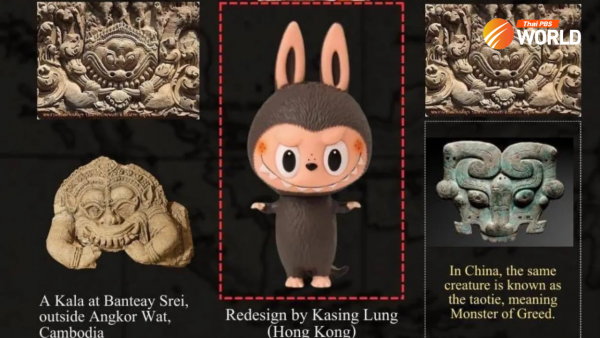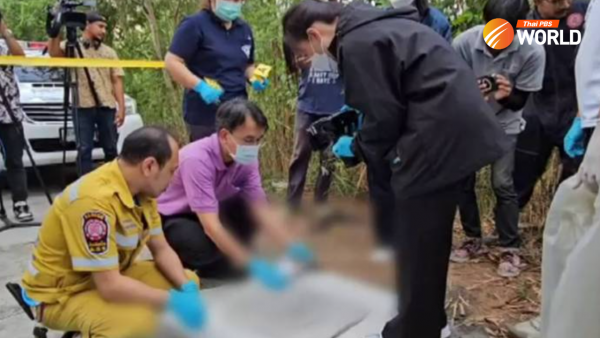A closer look at the King’s 2 Regiments now in protesters’ sights

Anti-establishment protesters have raised the ante in their ongoing protests for reform of the monarchy, by targeting HM the King’s finances and links with the Army.
On November 25, they rallied outside the headquarters of Siam Commercial Bank, in which the King is the major shareholder. An earlier plan to rally at the Crown Property Bureau was changed after police built walls of shipping containers to keep away the protesters.
Four days later on Sunday, the movement once again switched its protest site to the 11th Infantry Regiment of the King’s Guards in Bangkok’s Bang Khen district after police built a wall of containers at the 1st Infantry Regiment of the King’s Guards,located on Vibhavadi Rangsit Road.
Both regiments have been closely associated with the Thai monarchy since their birth more than a century ago.
Protest leader Parit “Penguin” Chiwarak said on November 29 that though the rally was shifted, a protest at either military base was “equally effective” in conveying the message.
The message was the fact that both regiments had been placed under the direct control of the King’s Royal Security Command, he said.
“We do not agree that the monarchy requires its own military force. Providing security to the royals should be the government’s duty.”
He added that both regiments had played key roles in dispersal of political demonstrations and staging military coups “on many occasions”.
The Khana Ratsadon 2563 (People’s Party 2020) protest movement is demanding reform of the monarchy, a democratic Constitution and the removal of Prime Minister Prayut Chan-o-cha.

Synonymous with coups
The 11th Infantry Regiment has become synonymous with power seizures and political turmoil in modern Thai history.
Now, protesters want the military to stay out of politics and stop staging coups as a means to end political crises, notes Wanwichit Boonprong, a political scientist at Rangsit University.
“That is not something professional soldiers are supposed to do,” he told Thai PBS World.
“[Coups] are unacceptable internationally and an outdated solution [to political crises].”
An expert in military and security studies, Wanwichit said the protesters’ intended target was actually the people in power, as the 11th Infantry Regiment is seen as a “proxy” of the powers-that-be.
“This government has close ties with the military,” he noted, adding that strong military links are key to any Thai government’s stability.
However, unlike the protesters, Wanwichit believes that putting both regiments under the King’s direct command is an attempt to keep the military out of politics.
“Now that these regiments are under the King’s Royal Security Command, it is unlikely they will be used in staging coups in the future,” the academic said.
-
Protesters claim symbolic win for “taking back” the 11th Infantry Regiment from the Monarchy
-
No end in sight as both sides refuse to shift their stance
Long history
The 11th Infantry Regiment was established on January 20, 1902, during the reign of King Chulalongkorn (Rama V). The 1st Infantry Regiment was born 34 years earlier in November 1868 – a year after Rama V ascended to the throne.
Like its forerunner, the 11th Regiment initially focused on providing security within the Palace. However, its role later expanded beyond the Palace – with perceived political significance.
Troops from the unit fought against France in 1940 and 1941 following a territorial dispute in colonial Indochina, and quelled coup attempts in 1933, 1949 and 1951.
The regiment also took part in military operations against the Communist Party of Thailand, which launched an armed insurrection against the Thai government in August 1965.
Between 1969 and 1977, the regiment was deployed for operations in “hot spots” around the country which included attacks on communist bases in the forests.
In 2010, at the height of street protests by red shirts loyal to former prime minister Thaksin Shinawatra, then-PM Abhisit Vejjajiva was forced to take shelter in the 11th Infantry Regiment compound after protesters besieged Government House.
At that time, the regiment also housed the government’s Centre for Resolution of Emergency Situation set up to deal with the worsening protests.
That year, the 11th Infantry Regiment was commanded by Colonel Apirat Kongsompong, who would later become Army chief.
In May 2010, Apirat and his squad, on a mission to guard the Thaicom satellite station in Pathum Thani province, were engaged in a tense standoff with red-shirt protesters trying to take control of the place to avenge the government’s closure of their satellite-based TV station.
Apirat’s squad was cornered in the station, but refused to surrender and managed to stop the angry protesters’ advance.

Under Royal command
A royal decree was issued in September last year transferring control of the 1st and 11th Infantry Regiments to the King’s Royal Security Command, effective from October 1, 2019.
That followed a development in May 2017, when a new law was issued to transfer control of five state agencies overseeing royal affairs and security – including the Royal Security Command – to HM the King. The five agencies were previously controlled by the government, the military and the police.
The 11th Infantry Regiment is located on a 208-hectare plot of prime land in Bang Khen area, with a Skytrain station not far from its entrance.
One-sixth of the plot has been donated by King Maha Vajiralongkorn to build a school for training court officials and royal volunteers in late King Rama IX’s sufficiency theories and disaster-relief methods. This information was revealed by royalist academic Suphanat Aphinyan, who often attacks critics of the monarchy.
“In the future, training [at the regiment school] will be provided to students and members of the general public,” the University of Arkansas researcher announced on Facebook last Sunday.
Both the government and the Army recently described the compounds of the two regiments, together covering 288 hectares of prime land, as “royal ground”.
In July 2019 and June this year, three royal decrees were separately issued to remove “public land” as the description for plots allocated to the two regiments – more than 219 hectares for the 11th Infantry Regiment and almost 80 hectares for the 1st Infantry Regiment.
By Thai PBS World’s Political Desk






